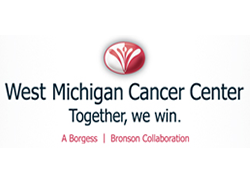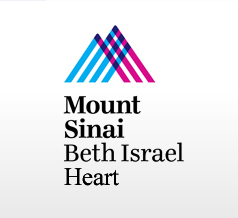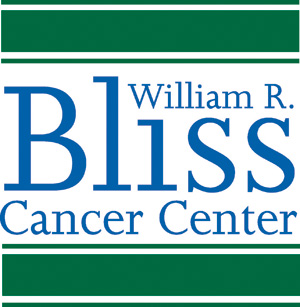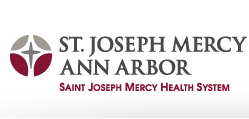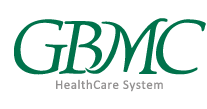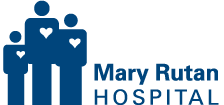Doxorubicin Hydrochloride, Cyclophosphamide, and Paclitaxel With or Without Bevacizumab in Treating Patients With Lymph Node-Positive or High-Risk, Lymph Node-Negative Breast Cancer
| Status: | Active, not recruiting |
|---|---|
| Conditions: | Breast Cancer, Cancer |
| Therapuetic Areas: | Oncology |
| Healthy: | No |
| Age Range: | 18 - Any |
| Updated: | 10/13/2017 |
| Start Date: | November 2, 2007 |
A Double-Blind Phase III Trial of Doxorubicin and Cyclophosphamide Followed by Paclitaxel With Bevacizumab or Placebo in Patients With Lymph Node Positive and High Risk Lymph Node Negative Breast Cancer
This randomized phase III trial studies doxorubicin hydrochloride, cyclophosphamide, and
paclitaxel to see how well they work with or without bevacizumab in treating patients with
cancer that has spread to the lymph nodes (lymph node-positive) or cancer that has not spread
to the lymph nodes but is at high risk for returning (high-risk, lymph node-negative breast
cancer). Drugs used in chemotherapy, such as doxorubicin hydrochloride, cyclophosphamide, and
paclitaxel, work in different ways to stop the growth of tumor cells, either by killing the
cells, by stopping them from dividing, or by stopping them from spreading. Monoclonal
antibodies, such as bevacizumab, may interfere with the ability of tumor cells to grow and
spread. Bevacizumab may also stop the growth of breast cancer by blocking blood flow to the
tumor. Giving chemotherapy after surgery may kill any tumor cells that remain after surgery
and help prevent the tumor from returning. It is not yet known whether doxorubicin
hydrochloride, cyclophosphamide, and paclitaxel are more effective with or without
bevacizumab.
paclitaxel to see how well they work with or without bevacizumab in treating patients with
cancer that has spread to the lymph nodes (lymph node-positive) or cancer that has not spread
to the lymph nodes but is at high risk for returning (high-risk, lymph node-negative breast
cancer). Drugs used in chemotherapy, such as doxorubicin hydrochloride, cyclophosphamide, and
paclitaxel, work in different ways to stop the growth of tumor cells, either by killing the
cells, by stopping them from dividing, or by stopping them from spreading. Monoclonal
antibodies, such as bevacizumab, may interfere with the ability of tumor cells to grow and
spread. Bevacizumab may also stop the growth of breast cancer by blocking blood flow to the
tumor. Giving chemotherapy after surgery may kill any tumor cells that remain after surgery
and help prevent the tumor from returning. It is not yet known whether doxorubicin
hydrochloride, cyclophosphamide, and paclitaxel are more effective with or without
bevacizumab.
PRIMARY OBJECTIVES:
I. To determine the disease-free survival of patients (defined as invasive disease-free
survival [IFDS]) with lymph node positive and high risk lymph node negative breast cancer
randomized to treatment with either doxorubicin (doxorubicin hydrochloride)/cyclophosphamide
plus placebo followed by paclitaxel (AC + placebo > T + placebo) or the same chemotherapy
regimen plus bevacizumab.
SECONDARY OBJECTIVES:
I. To compare short-term (20-24 weeks) versus long-term (50-54 weeks) bevacizumab therapy.
II. To compare the overall survival. III. To evaluate toxicity. IV. To evaluate the
association between outcomes in E5103 (disease-free survival, overall survival and
toxicities) and genotype (derived from candidate single nucleotide polymorphisms and genome
wide evaluations).
V. To compare the quality of life of breast cancer patients treated with AC/paclitaxel and
bevacizumab or placebo, in terms of physical symptoms, physical functioning, psychological
state and social functioning over an 18 month period.
VI. To determine the impact of theoretical biomarker information on patients' willingness to
accept the toxicities of bevacizumab for the estimated potential benefit.
VII. To create a biospecimen repository including plasma, serum and CellSearch cassettes
containing circulating tumor cells (CTC) for evaluating determinants of late relapse,
including candidate biomarkers reflecting occult tumor burden (e.g., CTCs and plasma tumor
deoxyribonucleic acid [DNA]) and host factors (e.g., estrogen, insulin-insulin-like growth
factor [IGF] axis, inflammation, etc).
VIII. To create a biorepository of metastatic tumor samples in patients who have had a late
relapse.
IX. To determine body mass index (BMI) and comorbidity burden in patients with operable
breast cancer five or more years after diagnosis.
X. To determine whether there is a relationship between late relapse and BMI at diagnosis and
at 5 years after diagnosis, and whether BMI-associated inflammatory and/or metabolic
biomarkers are associated with early and late recurrence.
OUTLINE: Patients are randomized to 1 of 3 treatment arms.
ARM I: Patients receive doxorubicin hydrochloride intravenously (IV), cyclophosphamide IV
over 20-30 minutes, and placebo IV over 30-90 minutes on day 1. Treatment repeats every 2 or
3 weeks for 4 courses. Beginning 3 weeks later, patients then receive paclitaxel IV over 1
hour on days 1, 8, and 15 and placebo IV over 30-90 minutes on day 1. Treatment with
paclitaxel and placebo repeats every 3 weeks for 4 courses.
ARM II: Patients receive doxorubicin hydrochloride and cyclophosphamide as in arm I and
bevacizumab IV over 30-90 minutes on day 1. Treatment repeats every 2 or 3 weeks for 4
courses. Beginning 3 weeks later, patients then receive paclitaxel as in arm I and
bevacizumab IV over 30-90 minutes on day 1. Treatment with paclitaxel and bevacizumab repeats
every 3 weeks for 4 courses.
ARM III: Patients receive doxorubicin hydrochloride and cyclophosphamide as in arm I and
bevacizumab as in arm II. Treatment repeats every 2 or 3 weeks for 4 courses. Beginning 3
weeks later, patients then receive paclitaxel as in arm I and bevacizumab as in arm II.
Treatment with paclitaxel and bevacizumab repeats every 3 weeks for 4 courses. Beginning 2
months later, patients then receive bevacizumab IV over 30-90 minutes on day 1. Treatment
with bevacizumab alone repeats every 3 weeks for 10 courses.
In all arms, treatment continues in the absence of disease progression or unacceptable
toxicity.
After completion of study treatment, patients are followed up for 15 years.
I. To determine the disease-free survival of patients (defined as invasive disease-free
survival [IFDS]) with lymph node positive and high risk lymph node negative breast cancer
randomized to treatment with either doxorubicin (doxorubicin hydrochloride)/cyclophosphamide
plus placebo followed by paclitaxel (AC + placebo > T + placebo) or the same chemotherapy
regimen plus bevacizumab.
SECONDARY OBJECTIVES:
I. To compare short-term (20-24 weeks) versus long-term (50-54 weeks) bevacizumab therapy.
II. To compare the overall survival. III. To evaluate toxicity. IV. To evaluate the
association between outcomes in E5103 (disease-free survival, overall survival and
toxicities) and genotype (derived from candidate single nucleotide polymorphisms and genome
wide evaluations).
V. To compare the quality of life of breast cancer patients treated with AC/paclitaxel and
bevacizumab or placebo, in terms of physical symptoms, physical functioning, psychological
state and social functioning over an 18 month period.
VI. To determine the impact of theoretical biomarker information on patients' willingness to
accept the toxicities of bevacizumab for the estimated potential benefit.
VII. To create a biospecimen repository including plasma, serum and CellSearch cassettes
containing circulating tumor cells (CTC) for evaluating determinants of late relapse,
including candidate biomarkers reflecting occult tumor burden (e.g., CTCs and plasma tumor
deoxyribonucleic acid [DNA]) and host factors (e.g., estrogen, insulin-insulin-like growth
factor [IGF] axis, inflammation, etc).
VIII. To create a biorepository of metastatic tumor samples in patients who have had a late
relapse.
IX. To determine body mass index (BMI) and comorbidity burden in patients with operable
breast cancer five or more years after diagnosis.
X. To determine whether there is a relationship between late relapse and BMI at diagnosis and
at 5 years after diagnosis, and whether BMI-associated inflammatory and/or metabolic
biomarkers are associated with early and late recurrence.
OUTLINE: Patients are randomized to 1 of 3 treatment arms.
ARM I: Patients receive doxorubicin hydrochloride intravenously (IV), cyclophosphamide IV
over 20-30 minutes, and placebo IV over 30-90 minutes on day 1. Treatment repeats every 2 or
3 weeks for 4 courses. Beginning 3 weeks later, patients then receive paclitaxel IV over 1
hour on days 1, 8, and 15 and placebo IV over 30-90 minutes on day 1. Treatment with
paclitaxel and placebo repeats every 3 weeks for 4 courses.
ARM II: Patients receive doxorubicin hydrochloride and cyclophosphamide as in arm I and
bevacizumab IV over 30-90 minutes on day 1. Treatment repeats every 2 or 3 weeks for 4
courses. Beginning 3 weeks later, patients then receive paclitaxel as in arm I and
bevacizumab IV over 30-90 minutes on day 1. Treatment with paclitaxel and bevacizumab repeats
every 3 weeks for 4 courses.
ARM III: Patients receive doxorubicin hydrochloride and cyclophosphamide as in arm I and
bevacizumab as in arm II. Treatment repeats every 2 or 3 weeks for 4 courses. Beginning 3
weeks later, patients then receive paclitaxel as in arm I and bevacizumab as in arm II.
Treatment with paclitaxel and bevacizumab repeats every 3 weeks for 4 courses. Beginning 2
months later, patients then receive bevacizumab IV over 30-90 minutes on day 1. Treatment
with bevacizumab alone repeats every 3 weeks for 10 courses.
In all arms, treatment continues in the absence of disease progression or unacceptable
toxicity.
After completion of study treatment, patients are followed up for 15 years.
Inclusion Criteria:
- Patients must have histologically confirmed adenocarcinoma of the breast at
significant risk of distant recurrence based on at least one of the following
criteria:
- For axillary lymph node positive disease:
- Involvement of at least one sentinel or axillary lymph node on routine
histologic examination; patients with negative sentinel nodes and negative
axillary nodes or involvement only demonstrated by immunohistochemistry are
not eligible unless they meet one of the other eligibility criteria below
- NOTE: consider intramammary nodes as equivalent to axillary nodes for the
purposes of eligibility and stratification
- For axillary lymph node negative disease:
- Estrogen receptor (ER) negative tumor >= 1 cm
- ER+ tumor >= 5 cm regardless of recurrence score
- ER+ tumor >= 1 cm but < 5 cm with a recurrence score >= 11 (patients
enrolled in the TAILORx trial are eligible)
- NOTE: axillary dissection is strongly encouraged in patients with lymph node
involvement identified on sentinel node biopsy
- Patients must have completed definitive breast surgery including total mastectomy and
axillary dissection (modified radical mastectomy), total mastectomy and sentinel node
biopsy, breast conservation surgery and axillary dissection or breast conservation
surgery and sentinel node biopsy
- NOTE: breast conservation surgery includes lumpectomy, partial mastectomy, and
excisional biopsy
- Margins of breast conservation surgery or mastectomy must be histologically free of
invasive breast cancer and ductal carcinoma in situ (DCIS); patients with resection
margins positive for lobular carcinoma in situ (LCIS) are eligible
- Time from last surgery for breast cancer (breast conservation surgery, mastectomy,
sentinel node biopsy, axillary dissection or re-excision of breast conservation
surgery margins) to planned treatment start date must be > 28 days and =< 84 days
- Eastern Cooperative Oncology Group (ECOG) performance status 0-1
- Absolute neutrophil count >= 1,000/mm^3
- Platelet count >= 100,000/mm^3
- Total bilirubin =< 1.5 mg/dL
- Aspartate aminotransferase (AST) =< 2 times upper limit of normal(ULN)
- Serum creatinine =< 1.5 mg/dL
- Urine protein:creatinine ratio < 1.0 or 24-hour protein
- Partial thromboplastin time (PTT) =< 1.5 times ULN
- Left ventricle ejection fraction (LVEF) >= institutional limits of normal by
echocardiogram (ECHO) or multigated acquisition scan (MUGA)
- Patients who have undergone breast conservation surgery must receive radiation; prior
to randomization, the investigator must specify the planned radiation technique:
- Whole breast radiation (WBRT) after chemotherapy
- Accelerated partial breast radiation (APBI) after chemotherapy
- Accelerated partial breast radiation (APBI) prior to chemotherapy
- NOTE: if APBI was completed prior to study entry, day 1 of protocol therapy must
be at least 4 weeks after the completion of APBI
- Post-mastectomy radiation therapy (RT) is required for all patients with a primary
tumor of >= 5 cm or involvement of 4 or more lymph nodes; post-mastectomy RT may be
administered at the investigator's discretion for all other mastectomy patients
- Patients with human epidermal growth factor receptor (HER)2 + (3+ by
immunohistochemistry [IHC] or fluorescent in situ hybridization [FISH] ratio >= 2)
breast cancer are not eligible
- Patients with synchronous bilateral breast cancer (diagnosed within one month) are
eligible if the higher tumor, node, metastasis (TNM) stage tumor meets the eligibility
criteria for this trial
- Patients must not have clinical evidence of inflammatory disease or fixed axillary
nodes at diagnosis
- Patients must not have received prior cytotoxic chemotherapy or hormonal therapy for
this breast cancer; prior treatment with an anthracycline, anthracenedione or taxane
for any condition is not allowed
- NOTE: prior use of tamoxifen for chemoprevention is allowed but must be
discontinued at study entry; similarly, prior raloxifene use is allowed but must
be discontinued at study entry
- Patients must not have had any major surgical procedure within 28 days of planned
treatment start date
- NOTE: non-operative biopsy or placement of a vascular access device is not
considered a major surgery
- Patients may not have had placement of a vascular access device within 24 hours of
planned day 1 of treatment
- Patients must not have clinically significant cardiovascular or cerebrovascular
disease, including:
- Any history of
- Cerebrovascular disease including transient ischemic attack (TIA), stroke or
subarachnoid hemorrhage
- Ischemic bowel
- Within the last 12 months
- Myocardial infarction
- Unstable angina
- New York Heart Association (NYHA) class II or greater congestive heart
failure
- Grade II or greater peripheral vascular disease
- Uncontrolled hypertension defined as systolic blood pressure (SBP) > 160 or
diastolic blood pressure (DBP) > 90
- Uncontrolled or clinically significant arrhythmia
- NOTE: blood pressure must be obtained within =< 8 weeks prior to
randomization
- NOTE: patients with controlled atrial fibrillation are eligible
- Patients who require full-dose anticoagulation may enroll provided they meet the
following criteria:
- The patient must have an in-range international normalized ratio (INR) (usually
between 2 and 3) on a stable dose of warfarin or be on stable dose of low
molecular weight (LMW) heparin
- The patient must not have active bleeding or pathological conditions that carry
high risk of bleeding (e.g. varices)
- NOTE: prophylactic use of anticoagulants to maintain patency of a vascular access
device is permitted
- Patients must not have a bleeding diathesis, hereditary or acquired bleeding disorder
or coagulopathy
- Patients must not have a non-healing wound or fracture; patients with an abdominal
fistula, gastrointestinal perforation, or intra-abdominal abscess within 6 months
prior to randomization are not eligible
- Patients must not have hypersensitivity to paclitaxel or drugs using the vehicle
Cremophor, Chinese hamster ovary cell products or other recombinant human antibodies
- Women must not be pregnant or breast-feeding; all females of childbearing potential
must have a blood or urine test within 7 days prior to randomization to rule out
pregnancy
- Women of childbearing potential and sexually active males must use an accepted and
effective method of contraception
We found this trial at
816
sites
Click here to add this to my saved trials
1201 Camino de Salud Northeast
Albuquerque, New Mexico 87131
Albuquerque, New Mexico 87131
(505) 272-4946

University of New Mexico Cancer Center It’s been 40 years since the New Mexico State...
Click here to add this to my saved trials
Harold Alfond Center for Cancer Care MaineGeneral's Harold Alfond Center for Cancer Care (HACCC) is...
Click here to add this to my saved trials
Suburban Hospital Suburban Hospital is a community-based, not-for-profit hospital serving Montgomery County and the surrounding...
Click here to add this to my saved trials
Click here to add this to my saved trials
Beth Israel Deaconess Medical Center Beth Israel Deaconess Medical Center (BIDMC) is one of the...
Click here to add this to my saved trials
Tufts Medical Center Tufts Medical Center is an internationally-respected academic medical center – a teaching...
Click here to add this to my saved trials
Brigham and Women's Hosp Boston’s Brigham and Women’s Hospital (BWH) is an international leader in...
Click here to add this to my saved trials
Roswell Park Cancer Institute Welcome to Roswell Park Cancer Institute (RPCI), America's first cancer center...
Click here to add this to my saved trials
1 South Prospect Street
Burlington, Vermont 05401
Burlington, Vermont 05401
802-656-8990
Click here to add this to my saved trials
1300 Jefferson Park Avenue
Charlottesville, Virginia 22908
Charlottesville, Virginia 22908
434-243-6784

University of Virginia Cancer Center We are fortunate in having state of the art clinical...
Click here to add this to my saved trials
Medical City Dallas Hospital If you have concerns for your health, that of a family...
Click here to add this to my saved trials
Hurley Medical Center From its founding in 1908, Hurley Medical Center has devoted itself to...
Click here to add this to my saved trials
Holy Cross Hospital While spirituality plays an essential role in the way that we minister...
Click here to add this to my saved trials
Brooke Army Medical Center Brooke Army Medical Center (BAMC) is the Flagship of Army Medicine!...
Click here to add this to my saved trials
Click here to add this to my saved trials
Bronson Methodist Hospital Our healthcare system serves patients and families throughout southwest Michigan and northern...
Click here to add this to my saved trials
West Michigan Cancer Center In 1994, Borgess Health Alliance and Bronson Healthcare Group opened the...
Click here to add this to my saved trials
Kinston Medical Specialists offers comprehensive medical services for all ages. Whether it’s a case of...
Click here to add this to my saved trials
1800 West Charleston Boulevard
Las Vegas, Nevada 89102
Las Vegas, Nevada 89102
(702) 383-2000

University Medical Center of Southern Nevada University Medical Center is dedicated to providing the highest...
Click here to add this to my saved trials
Click here to add this to my saved trials
529 West Markham Street
Little Rock, Arkansas 72205
Little Rock, Arkansas 72205
(501) 686-7000
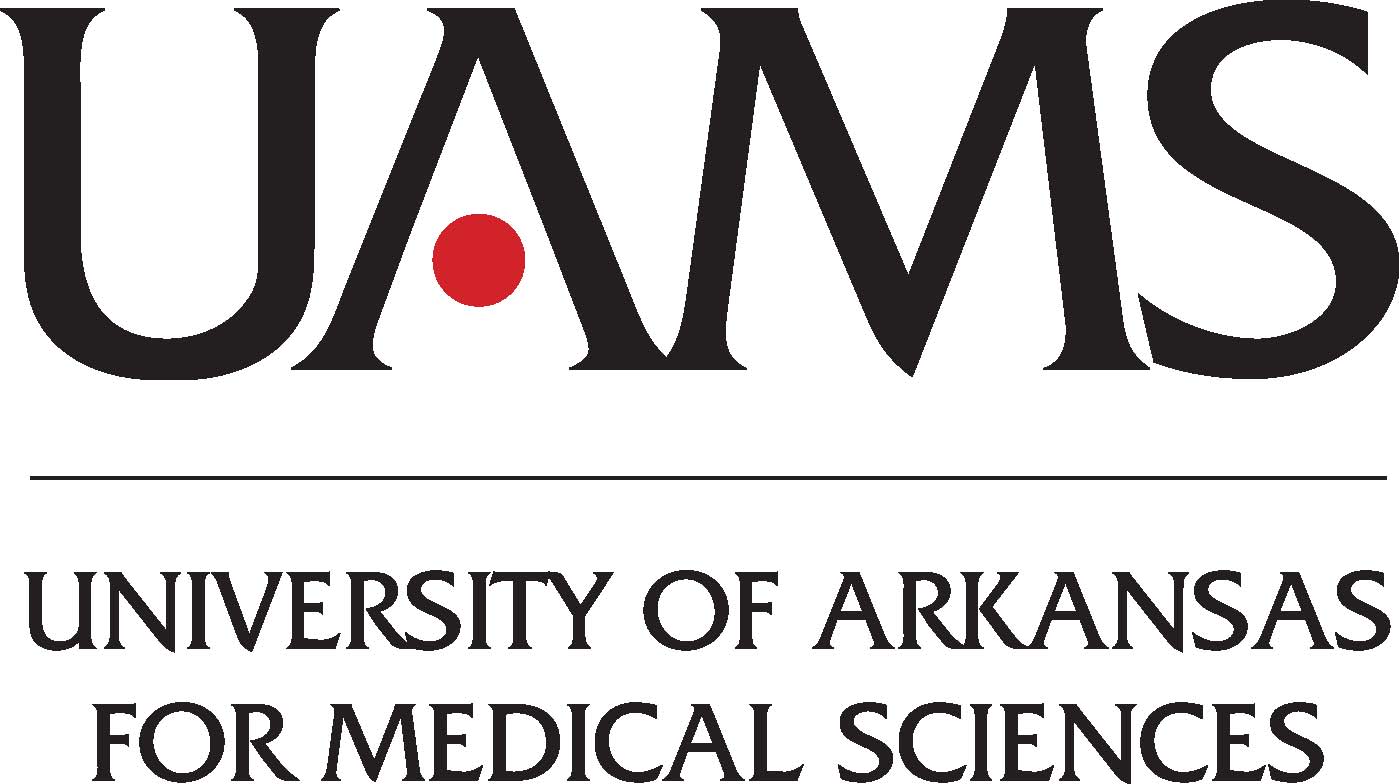
University of Arkansas for Medical Sciences The University of Arkansas for Medical Sciences (UAMS) in...
Click here to add this to my saved trials
Medical Center of Central Georgia Navicent Health is a designated Level I Trauma Center and...
Click here to add this to my saved trials
Beth Israel Med Ctr The physicians and staff of Mount Sinai Beth Israel's Heart Institute...
Click here to add this to my saved trials
4805 Northeast Glisan Street
Portland, Oregon 97213
Portland, Oregon 97213
(503) 215-1111

Providence Portland Medical Center We strive to give those we serve exceptional, compassionate health care...
Click here to add this to my saved trials
3181 Southwest Sam Jackson Park Road
Portland, Oregon 97239
Portland, Oregon 97239
503 494-8311

Oregon Health and Science University In 1887, the inaugural class of the University of Oregon...
Click here to add this to my saved trials
Rhode Island Hospital Founded in 1863, Rhode Island Hospital in Providence, RI, is a private,...
Click here to add this to my saved trials
University of Rochester The University of Rochester is one of the country's top-tier research universities....
Click here to add this to my saved trials
Avera Cancer Institute Avera, the health ministry of the Benedictine and Presentation Sisters, is a...
Click here to add this to my saved trials
Click here to add this to my saved trials
Click here to add this to my saved trials
Click here to add this to my saved trials
Abington Memorial Hospital Abington Memorial Hospital (AMH) is a 665-bed, regional referral center and teaching...
Click here to add this to my saved trials
Akron General Medical Center It
Click here to add this to my saved trials
Click here to add this to my saved trials
Click here to add this to my saved trials
Click here to add this to my saved trials
Click here to add this to my saved trials
Click here to add this to my saved trials
Click here to add this to my saved trials
Click here to add this to my saved trials
Click here to add this to my saved trials
McFarland Clinic PC-William R Bliss Cancer Center The William R. Bliss Cancer Center at Mary...
Click here to add this to my saved trials
Click here to add this to my saved trials
Click here to add this to my saved trials
Click here to add this to my saved trials
Click here to add this to my saved trials
Saint Joseph Mercy Hospital St. Joseph Mercy Ann Arbor Hospital is a 537-bed teaching hospital...
Click here to add this to my saved trials
Click here to add this to my saved trials
Click here to add this to my saved trials
Click here to add this to my saved trials
Click here to add this to my saved trials
Click here to add this to my saved trials
Click here to add this to my saved trials
Randolph Hospital Since 1932, Randolph Hospital has been fortunate to employ dedicated and loyal personnel...
Click here to add this to my saved trials
Click here to add this to my saved trials
Click here to add this to my saved trials
Click here to add this to my saved trials
5665 Peachtree Dunwoody Rd NE
Atlanta, Georgia 30342
Atlanta, Georgia 30342
(678) 843-7001

Saint Joseph's Hospital of Atlanta Founded by the Sisters of Mercy in 1880, Saint Joseph
Click here to add this to my saved trials
Piedmont Hospital For more than a century, Piedmont Healthcare has been a recognized leader in...
Click here to add this to my saved trials
Northside Hospital Northside Hospital-Atlanta (in Sandy Springs) opened in 1970. The original facility had 250...
Click here to add this to my saved trials
Click here to add this to my saved trials
Click here to add this to my saved trials
Click here to add this to my saved trials
Emory University Hospital Midtown Emory University Hospital Midtown is a 511-bed community-based, acute care teaching...
Click here to add this to my saved trials
Click here to add this to my saved trials
Click here to add this to my saved trials
Medical Center of Aurora At The Medical Center of Aurora and Centennial Medical Plaza patients...
Click here to add this to my saved trials
Rush - Copley Medical Center Rush-Copley is proud to be the leading provider of health...
Click here to add this to my saved trials
Click here to add this to my saved trials
Greater Baltimore Medical Center The 255-bed medical center (acute and sub-acute care) is located on...
Click here to add this to my saved trials
Click here to add this to my saved trials
22 South Greene Street
Baltimore, Maryland 21201
Baltimore, Maryland 21201
410-328-7904

University of Maryland Greenebaum Cancer Center The University of Maryland Marlene and Stewart Greenebaum Cancer...
Click here to add this to my saved trials
401 North Broadway
Baltimore, Maryland 21287
Baltimore, Maryland 21287
410-955-5000

Johns Hopkins University-Sidney Kimmel Cancer Center The name Johns Hopkins has become synonymous with excellence...
Click here to add this to my saved trials
Click here to add this to my saved trials
Click here to add this to my saved trials
Eastern Maine Medical Center Located in Bangor, Eastern Maine Medical Center (EMMC) serves communities throughout...
Click here to add this to my saved trials
Click here to add this to my saved trials
Click here to add this to my saved trials
Bronson Battle Creek As a proud member of the Battle Creek community, we believe everyone...
Click here to add this to my saved trials
Click here to add this to my saved trials
Mary Rutan Hospital The hospital was endowed by the sale of a farm in Ridgeway...
Click here to add this to my saved trials
Sanford Clinic North-Bemidgi Sanford Health is a voluntary, not-for-profit health care organization. Through its entities,...
Click here to add this to my saved trials
Click here to add this to my saved trials
Click here to add this to my saved trials
1311 Barre-Montpelier Road
Berlin Corners, Vermont 05602
Berlin Corners, Vermont 05602
Click here to add this to my saved trials
Click here to add this to my saved trials
Click here to add this to my saved trials
Click here to add this to my saved trials
Click here to add this to my saved trials
Click here to add this to my saved trials
Click here to add this to my saved trials
Click here to add this to my saved trials
Click here to add this to my saved trials
Saint Vincent Healthcare The Sisters of Charity of Leavenworth, Kansas, founded St. Vincent Healthcare in...
Click here to add this to my saved trials
Click here to add this to my saved trials
Click here to add this to my saved trials
Click here to add this to my saved trials
Mid Dakota Clinic, PC We're your family clinic, with the doctors you know and trust...
Click here to add this to my saved trials
Saint Alexius Medical Center St. Alexius Medical Center is a 306-bed, full-service, acute care medical...
Click here to add this to my saved trials
Sanford Bismarck Medical Center Whether your stay in our hospital is one day for same...
Click here to add this to my saved trials











